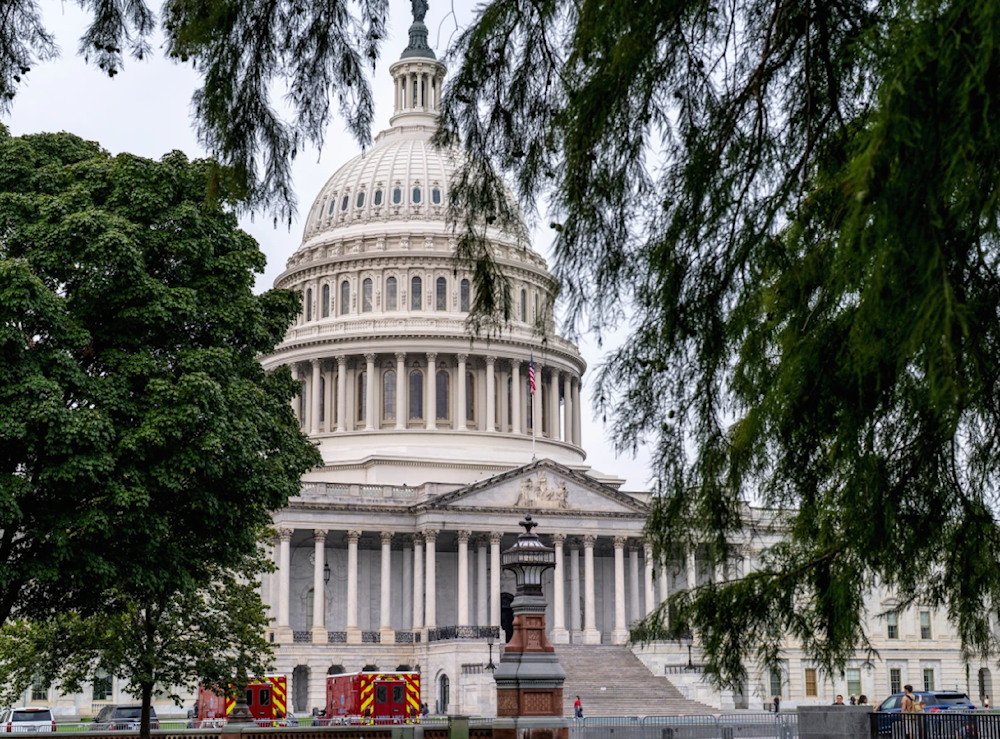US braces for largest fed. worker resignation in history under Trump
Over 100,000 US federal employees resign under Trump’s deferred program, marking the biggest government workforce cut since WWII.
-

The Capitol in Washington on September 24, 2025 (AP)
The Trump administration is set to oversee the largest mass resignation in US history on Tuesday, with more than 100,000 federal employees formally leaving under its deferred resignation program.
The wave of departures comes as Congress faces a funding deadline to avoid a government shutdown.
The White House has also ordered agencies to prepare contingency plans for mass firings if lawmakers fail to reach a deal.
Workers say resignations driven by fear, intimidation
Federal workers describe the atmosphere inside agencies as marked by “fear and intimidation,” leaving many feeling they had no choice but to quit.
“Federal workers stay for the mission. When that mission is taken away, when they’re scapegoated and their job security is uncertain, they leave,” a longtime FEMA employee told The Guardian.
Others said the program amounted to a mental health decision after months of pressure. “It’s a huge grieving process,” said a Department of Veterans Affairs worker. “Many of us hoped we’d finish our careers in government.”
Largest workforce reduction since WWII
The resignation program is expected to cost $14.8 billion, covering up to eight months of full salary and benefits for 200,000 employees on leave. The White House argues the plan will ultimately save $28 billion annually by reducing the long-term size of the federal workforce.
In total, nearly 275,000 employees are expected to depart through resignations, early retirements, and attrition, marking the steepest single-year decline in federal civilian employment since World War II.
Critics, including federal unions, argue the program undermines government functions and circumvents congressional oversight. “Purging the federal government of dedicated career employees will cause chaos for Americans who depend on a functioning government,” said AFGE president Everett Kelley.
Weak job market
The resignations come amid a fragile job market, with unemployment rising to 4.3% in August, the highest since 2021. Workers say finding new opportunities has been difficult.
One USDA archaeologist described the atmosphere as “living every day like a raw nerve,” citing repeated threats of cuts and remarks from Trump officials that federal workers should “not want to go to work.”
Labor unions are pursuing lawsuits to halt the program, but officials say the exodus will move ahead as scheduled.

 3 Min Read
3 Min Read










